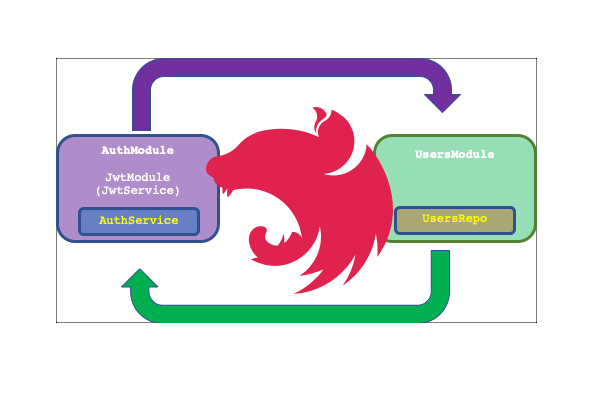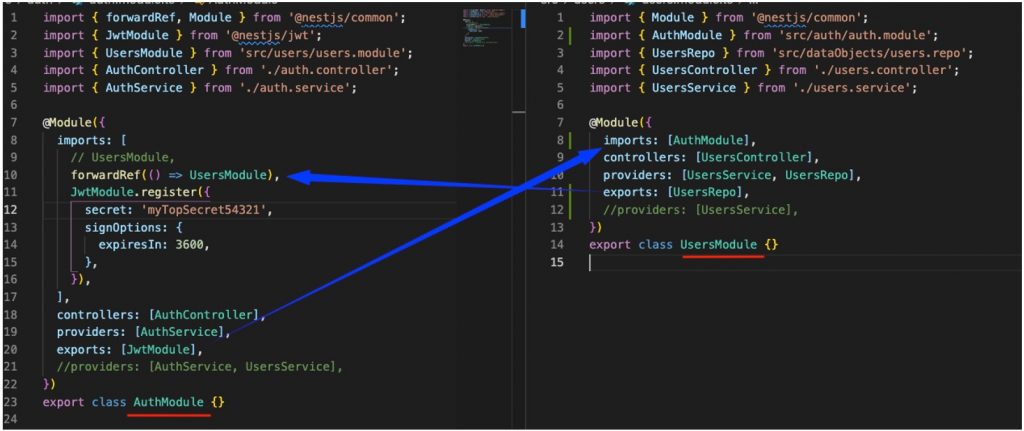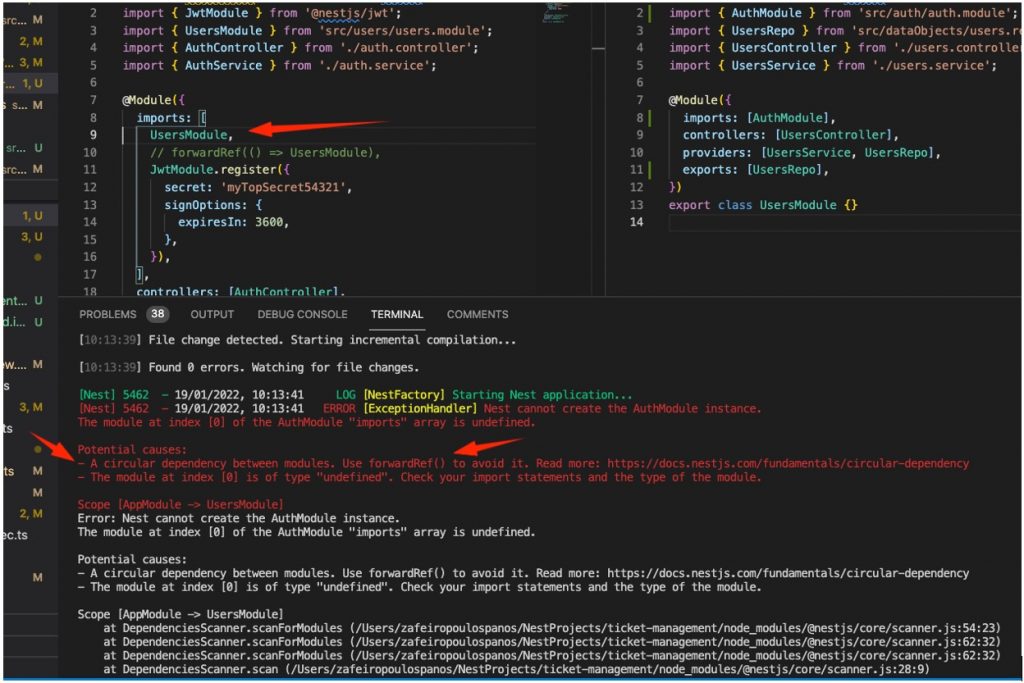NestJS: Avoid Circular Dependency issues

220119
Summary
Here, you can get a nice grasp on how you can avoid the Circular Dependency in Nest.js.
Intro
The official Nest.js documentation states that “A circular dependency occurs when two classes depend on each other. For example, class A needs class B, and class B also needs class A. Circular dependencies can arise in Nest between modules and between providers.
While circular dependencies should be avoided where possible, you can’t always do so. In such cases, Nest enables resolving circular dependencies between providers in two ways. In this chapter, we describe using forward referencing as one technique, and using the ModuleRef class to retrieve a provider instance from the DI container as another.”
Our example case
Here, you can get a
We have 2 classes the UsersRepo (in UsersModule) and the JwtService (in AuthModule provided by JwTModule declared in AuthModule). And each one depends on the other.
The UsersRepo of the UsersModule needs the JwtService (JwtModule) for JWT validation and decoding. The JwtModule is declared, configured, and exported in AuthModule. So, in UsersModule we can (we have to) import it the ‘normal’ way.
The UsersModule
We can inject the JwtService the ‘normal’ way in the UsersRepo constructor:
. . .
import { JwtService } from ‘@nestjs/jwt’;
. . .
export class UsersRepo {
constructor(private jwtService: JwtService), …)
. . .
From the other side, the AuthService of the AuthModule needs the UsersRepo for user signin/signup. UsersRepo is a class (a service provider) exported by UsersModule. We can (we have to) import it in AuthModule using the forwardRef().
The AuthModule
Again, we can also inject the UsersRepo in the AuthService, by using the ‘normal’ way (note that the JwtService here is used to create and return a new JWT):
. . .
import { UsersRepo } from ‘src/dataObjects/users.repo’;
import { JwtService } from ‘@nestjs/jwt’;
. . .
@Injectable()
export class AuthService {
constructor(private usersRepo: UsersRepo, private jwtService: JwtService) {}
. . .

Reproducing the Circular Dependency error
If we try to import it the ‘normal’ way (imports: [UsersModule, …]) we will get the circular dependency error:

That’s it!
Thanks for reading and happy coding!
